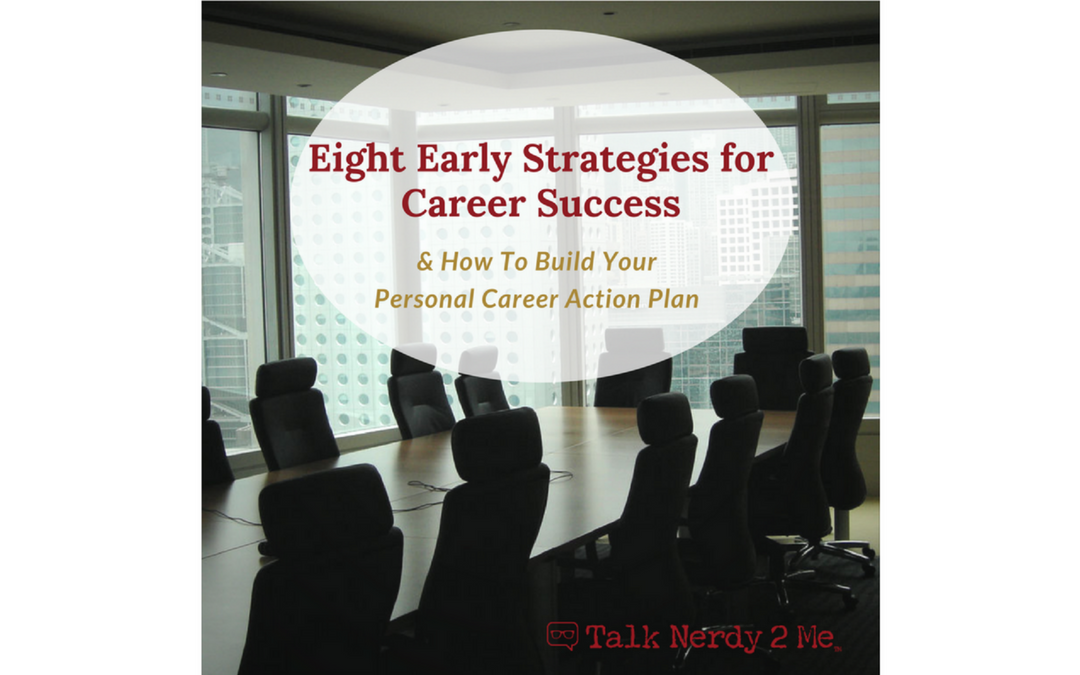Achieving a successful career is easier than you think, but preparation is key. All college students have numerous career resources at hand. However, many fail to use them, and most career centers are a one-size-fits-all that offers little variance in advice and support to individual circumstances. With these eight NSCS exclusively crafted key strategies listed below, you can develop your own Career Action Plan to ensure your success.
1. Target your #1 career goal
Explore your career options and supporting academic programs to find a major that best suits your interests and passions. You can talk to your campus career center about assessments to better understand your traits, values, and competencies relative to your career choice.
2. Pick your courses strategically
Choose your classes wisely to align with specific knowledge and skills applicable to your career. You can find relevant courses by reading job descriptions, seeking out mentors in the field you are interested in and talking to professors and academic advisers.
3. Develop a Plan B
Plans don’t always work out the way we want them to, usually for reasons we can’t control. Therefore, be sure that your Plan A is flexible enough to re-direct what you have already invested in your future, if needed. The characteristics of one career path can always be found in another.
4. Build your emotional intelligence (EQ)
Along with your grades and book smarts, future employers want you to bring EQ to your work. EQ is the ability to manage your own emotions, thoughts and self, be aware of other’s emotions and discern between emotions and thoughts to guide informed actions. This includes self-awareness, problem-solving, crisis management and communication.
5. Connect with your professors
Talk to professors who are experts in the field of work that you are pursuing. As you learn about their research and ask for contacts and resources, you can gain knowledge and insight along with future recommendations and connections for internships, employment, or advanced degree programs. Be sure to stay in touch with them as you progress.
6. Build your GiftedHire profile
To link your academic path and broader career goal, you need to connect with employers for internships as early as sophomore year. However, career fairs are limited to the employers who come to campus and job boards can be overwhelming with jobs you do not want. As a NSCS student, you are granted access to the exclusive online platform GiftedHire to reach employers. Completing your profile and keeping it up-to-date will lead you one step closer to success.
7. Network with professionals
Networking may seem a bit awkward and intimidating when you are a student attempting to reach out to a professional, but here is a little secret: people love to give advice. To get started, you can find local professionals and alumni on LinkedIn or through your campus career center to politely ask for 15 minutes of their time. Who knows, you could possibly be a good connection for them as well.
8. Track your progress
Fully embracing each activity with observation and appreciation toward the opportunity and challenge leads to success. Employers will ask you about extracurricular activities, projects and internships with measurable achievements. Being able to articulate your accomplishments and how they have helped to prepare you for your career will make you stand out.
Conclusion
To make the most of your college education and begin your professional success, you must start now. Planning ahead and taking advantage of the resources around you will ensure that you do not miss out on the opportunities available to you.
Complete your own Career Action Plan and read the full article Eight Early Strategies for Career Success & How to Build Your Personal Career Action Plan today.

